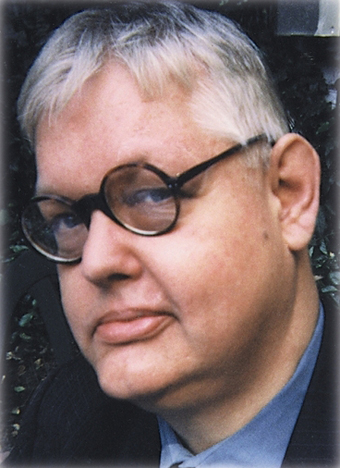
Doug Ireland survived two plagues, both times betrayed by people in thrall to political or religious fanaticism. The first plague was polio, which he contracted as a child because his Christian Scientist parents had refused on religious grounds to have him inoculated, and he suffered from muscular degeneration, respiratory difficulty and other consequences of the disease ever after.
The second plague was HIV, which claimed the life of his great love, Hervé Couergou. When Herve was too sick to work Doug moved back to New York to earn money for his care, eventually taking a job at the Village Voice with health insurance that would cover them both. But Herve could not join him because President Bill Clinton renewed a Bush-era executive order barring HIV-positive non-citizens from entering the US, and he died in a Paris hospital without Doug at his side. As a survivor of such pious treacheries, Doug harbored no illusions about the goodness of parents or politicians, gods or governments.
I first encountered Doug in 1981, holding court in the conference room at The Nation's old Fifth Avenue office. Victor Navasky had enlisted him to help organize an American Writers Congress modeled loosely on the left-wing authors' gatherings of the 1930s. I walked in on an immense, rumpled, bespectacled owl regaling a tableful of interns and editors with a sardonic yarn involving James Baldwin and a man he referred to as the Red Queen. Working with him on that Congress was its own sort of political education. Doug would gleefully report every ancient sectarian faction fight, sexual embroglio and barroom brawl in New York, inviting us to picture the blood-and-feathers mayhem that would ensue if Novelist A was put on a panel with Historian B.
To a young journalist in the early 80s Doug seemed already to have lived an impossible number of lives: Youthful SDSer, campaign manager for antiwar Congressional candidates Allard Lowenstein and Bella Abzug. Calculating New York city political operative, pioneering gay liberation activist. Unbossed columnist for the Village Voice and Soho News who every few years seemed to get fired or walk.
Doug called himself a journalist but his obsession – in conversation, columns, blogs – was history: cycles of antigay violence in law and deed and the rise of gay liberation, the self-immolating history of the American left, the electoral history of particular postage-stamp New York precincts. He was at once an American New Leftist who believed the early promise of native socialism was betrayed by the Communist Party USA's devotion to Moscow, and a continental sensualist as comfortable living in Paris or reporting on Budapest as drinking at the Lion's Head.
Doug fought the right but also kept his radar hyper-tuned for sellouts on the progressive side of the equation – whether among elected politicians, mainstream LGBT groups or other human-rights campaigners. His relationship with liberal Democrats – and at times with the Nation itself – was particularly contentious in the later Clinton years, when he was infuriated by party faithful closing ranks around a White House he believed richly deserved the whupping it had courted. He chronicled Bill Clinton’s flourishing career as a liar and opportunist, and the corruption made manifest by Clinton's signature on the Defense of Marriage Act and by his Reaganite embrace of deregulation. Doug counted the Clintons among the chief engineers of what he called "the bipartisan ethical sewer in Washington."
After Herve’s death Doug suffered profound depression, and he credited Christopher Hitchens with gently talking him out of suicide. In recent years, his health deteriorated; he rarely ventured out, saw few friends and ended up homeless sleeping on a friend's couch for a time after Hurricane Sandy. Largely immobilized by muscular deterioration, kidney failure, chronic sciatica and strokes, he kept working the phones, trawling for hard news and gossip, as well as blogging, posting to Facebook and reporting, reporting, reporting.
Many of his final pieces chronicled the daily life-and-death struggles of gay activists in Iran and Russia, whom he believed American gay rights organizations, riding a wave of Marriage-Equality-Act euphoria, were ignoring. This old mentor, firebrand and friend, restricted by his long last illness to an East Village flat yet still wielding his outrage against human rights crimes being committed on the other side of the world: that’s the picture of Doug Ireland to remember.


